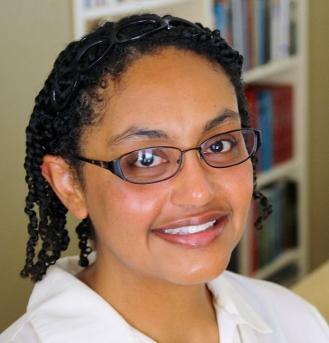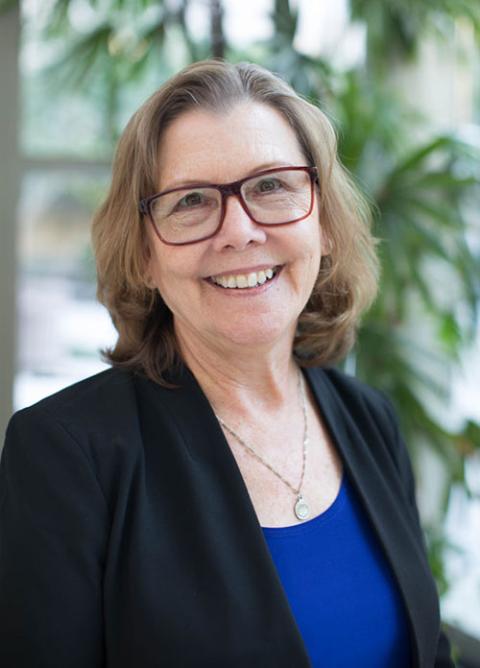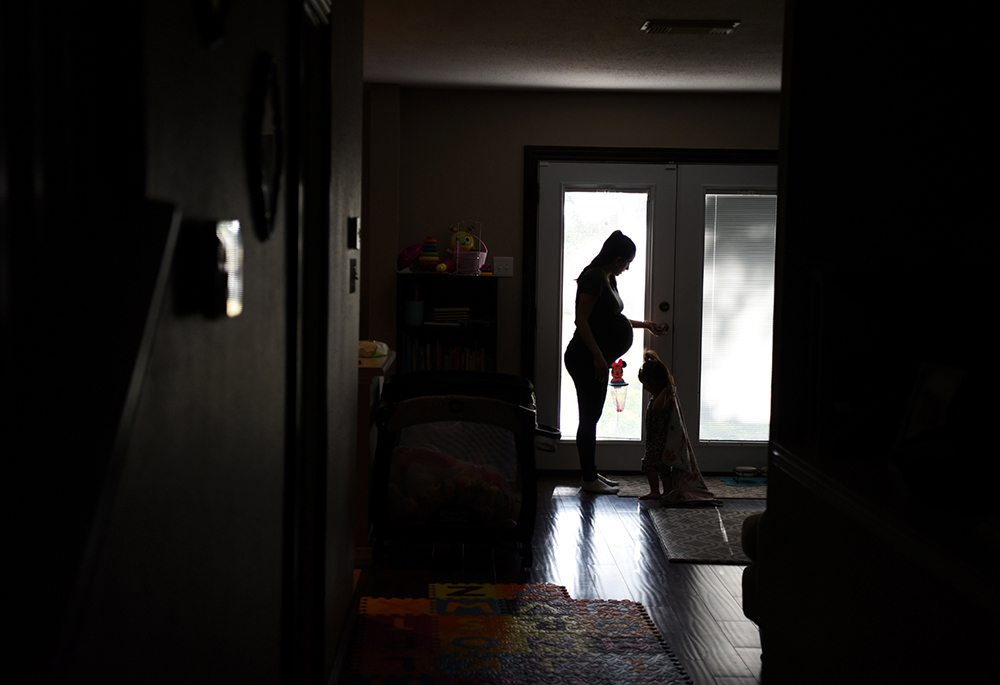
A pregnant woman in May in San Antonio (CNS/Reuters/Callaghan O'Hare)
As the U.S. Supreme Court decision that overturned the constitutional right to abortion continues to shape the American political and cultural landscape, with pro-life and pro-choice supporters carrying on their ardent advocacy, Catholic sisters and others say this is the right time to examine broader questions of how the United States can better help women — pregnant women, in particular — and their families.
In the months since the landmark June 24 decision, and with U.S. Catholics marking Respect Life Month, it has become almost a standard statement within sister circles to affirm the need for "womb-to-tomb" protections. In recent interviews with Global Sisters Report, sisters and other advocates stressed that the United States is not doing right by its women and children.
"We've got to be able to now focus on the whole continuum of life — the life of the mother and the life of the child — and help individuals and communities in need," said Mercy Sr. Mary Haddad, president and CEO of the Catholic Health Association of the United States.
"Women are still marginalized, especially women of color and women who are economically marginalized. As a society, we need to do more to improve access to affordable housing, education, health care and spiritual support," she said. "Women have not had the support they need."
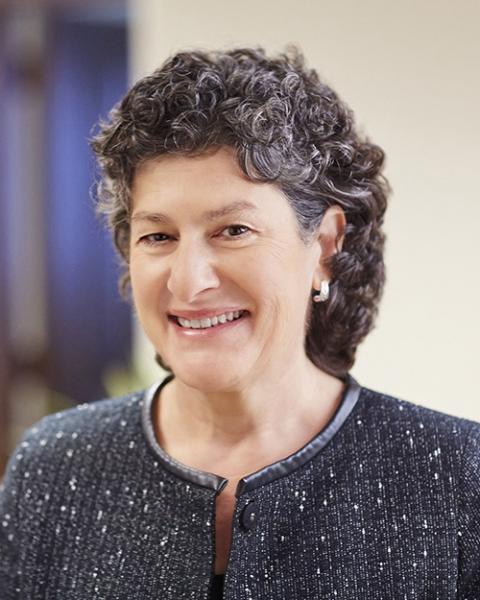
Mercy Sr. Mary Haddad in 2016 (CNS/Courtesy of Catholic Health Association)
Some sisters say that given the outcome of the Supreme Court decision, Dobbs v. Jackson Women's Health Organization, now is the time to redouble efforts to continue and expand ministries to help women facing difficult decisions about their pregnancies.
Sr. Mary Jo Gramig, an Ursuline Sister of Louisville, Kentucky, told GSR that she and other Ursuline sisters support a number of ministries in Louisville that take a defined pro-life stance, including a pregnancy resource center that provides counseling to pregnant women and a maternity house for unmarried women who have opted to carry their pregnancies to term.
"This kind of pro-life ministry is important because the mothers there need supportive, practical help during their pregnancy and afterward," Gramig said.
That type of ministry is one part of a larger picture. Advocates for economically poor women and women of color say another essential part is to lift up the experiences of those who "are already on the margins of society," said Sr. Nicole Trahan, a Marianist Sister and a member of the National Black Sisters' Conference.
"Many of them are in professions that do not allow for adequate health care and maternity leave," said Trahan, who holds a number of positions with her province, including vocations director and pre-novitiate director. Trahan said she opposes abortion but also believes the issue has been overly simplified in a politicized, media-driven environment.
"I am not a proponent of abortion, but I wish before it was made illegal, the supports and safety nets were in place," Trahan told GSR. "That hasn't been done. What are women to do?"
Sr. Anita Baird of the Daughters of the Heart of Mary agreed that the decision puts more pressure on women at the margins of society.
"The United States has no trouble in passing restrictive laws that will not permit women to abort life but consistently fails to pass legislation that would provide the resources needed to support life outside of the womb," said Baird, who is also a member of the National Black Sisters' Conference.
"Society and the church are often silent when it comes to issues of injustice as it impacts in particular poor women and women of color."
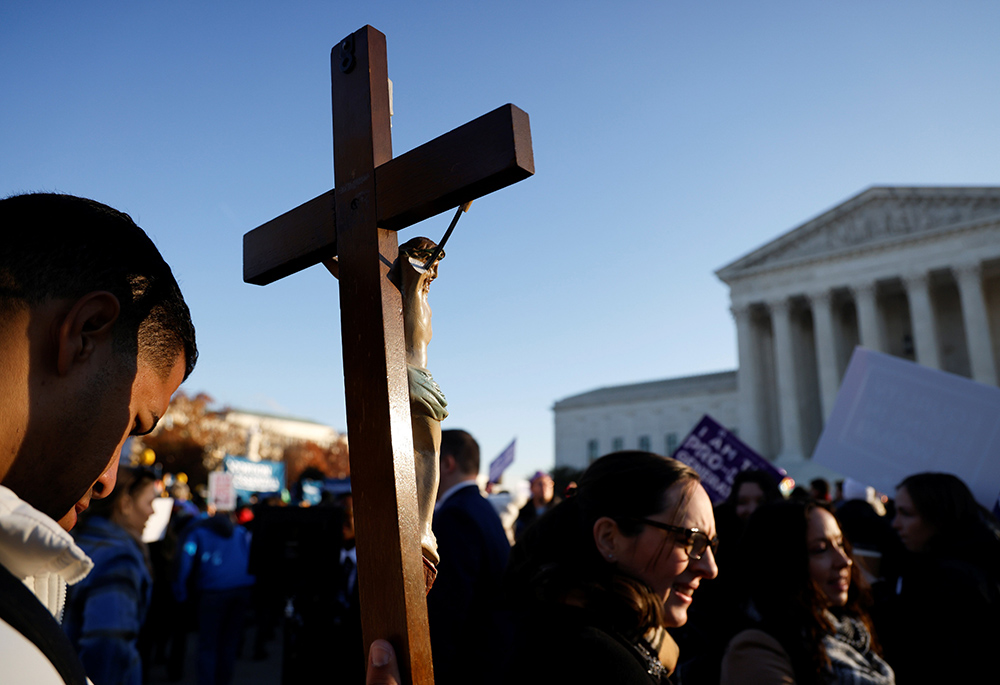
A pro-life activist holds a crucifix at a Dec. 1, 2021, protest outside the U.S. Supreme Court building in Washington, D.C., ahead of the court hearing oral arguments in the case Dobbs v. Jackson Women's Health Organization. (CNS/Reuters/Jonathan Ernst)
'Everyone needs to listen to women and families'
Now that the Supreme Court has had its say, and given the long-standing national debate and polarization over abortion, some hope this might be a moment in which a consensus can emerge about greater protections and help for women and families.
"Faith-based, home-grown programs and established charities like Catholic Charities have always been helping women, pregnant or not, who are raising a family or trying to get an education or a job or a safe and affordable place to live," Sr. Agnes Coveney, a member of the leadership team of the Ursuline Sisters of Louisville, told GSR. "But we know these worthy efforts don't have the capacity to substantially, consistently, permanently change the economic situation of poor people for the better. That calls for state and federal action."
Coveney and other sisters support the work Network, a Catholic social justice lobby, and others advocated for in the Inflation Reduction Act — federal legislation signed into law in August — to "include Medicaid provisions for people in poverty, require all 50 states to extend postpartum coverage for a full year, and continue children's Medicaid and Children's Health Insurance Programs," Coveney said.
While the final law failed to include these provisions, Mary J. Novak, Network's executive director, told GSR that Network anticipates future opportunities to lobby for their passage.
Such efforts need to be part of larger work, she said: "Everyone needs to listen to women and families," especially those on the margins.
Twelve states continue to reject Medicaid expansion under the Affordable Care Act, denying access to affordable health care for millions of adults living below or near the poverty line more than a decade after the Affordable Care Act became law, Novak said.
She added that the continued rejection of Medicaid expansion is worrying because it denies help to so many.
"Filling the coverage gap must be part of the post-Dobbs landscape," she said.
That is one of Network's key advocacy goals. Others include extending the expanded Biden tax credit for children, which Novak said has helped 3.7 million families leave economic poverty; federal protections for pregnant women at work; and, perhaps most ambitiously, a national paid family and medical leave program.
Novak called these programs "life-giving legislation" for women and children and "baseline requirements for any healthy, loving society."
Advertisement
Achieving advocacy goals like Network's would increase the quality of life for many women, the sisters say, particularly for those on the margins.
"The biggest challenges facing Black women in light of the Dobbs decision are health care disparities, high infant birth mortality, access to competent health care, and access to support services like day care, preschool, excellent schools, quality food and safe environments free of toxic chemicals and high crime," Baird said.
Trahan highlighted the expensive cost of child care and said that "there aren't enough supports for facilities at workplaces, such as places for breastfeeding or pumping for breast milk."
She also noted the high cost of giving birth, "particularly for those mothers who don't have adequate insurance. And that ties in with our medical insurance situation, which has to change."
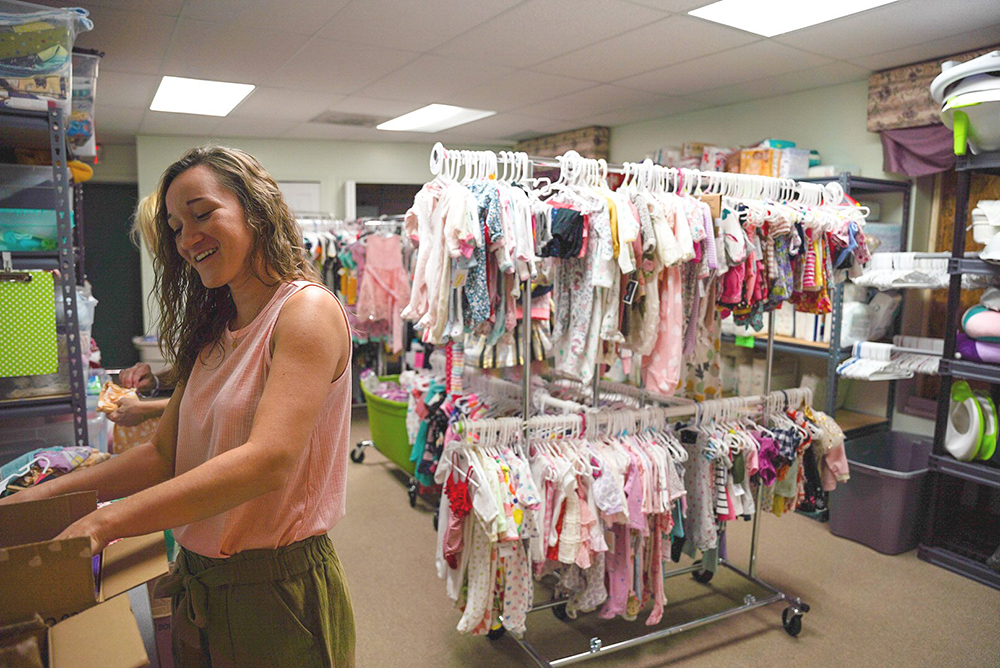
Emily Fitzgerald helps out in the clothing closet at the Lennon Pregnancy Center in Dearborn Heights, Michigan, on July 21. The center provides support and services to expecting parents. (CNS/Detroit Catholic/Valaurian Waller)
Moving beyond the binary to provide help
Sisters who spoke to GSR do not like the pro-choice/pro-life binary and the ways in which the issue has become politicized.
"The media coverage of Dobbs has ignored people like me, who see the complexity of the issue," Trahan said. "The setup is always: 'Pro-choice or pro-life and unborn child.' "
Baird said many who see the issue as binary miss a larger picture mindful of both long-standing injustices and a consistent pro-life ethic.
"This 'seamless garment' understanding of the value of the totality of life calls for us to stand in solidarity with and in support of the innocent, vulnerable members of society, especially mothers and children, by providing necessary support systems, like providing quality prenatal care services; generous employment parental leave; access to affordable, if not free, health care; and worksite day care services or financial assistance for day care," she said.
Gramig, the Ursuline Sister of Louisville, praised the work of pastoral ministries that care for pregnant women and girls, such as the Little Way Pregnancy Resource Center, which has been in Louisville for nearly 40 years.
"There is no pressure, and the clients are not told what is morally right," she said. "The woman is asked questions to help her uncover her own goodness, her own maternal instincts. One of the most common client comments is, 'I didn't feel judged.' "
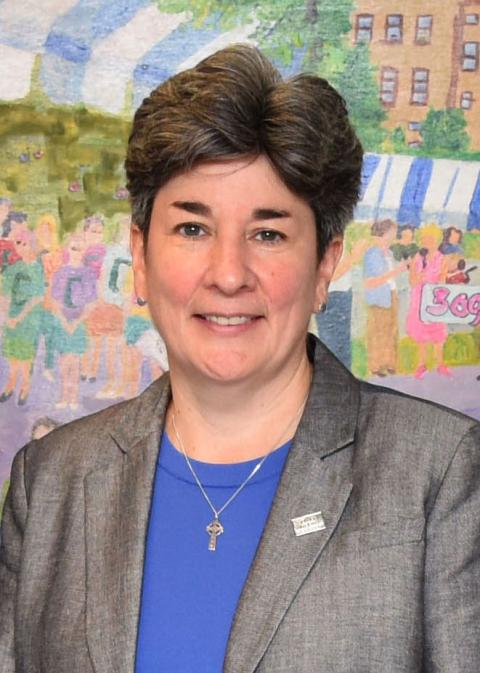
Sr. Maryalice Jacquinot of the Sisters, Servants of the Immaculate Heart of Mary in Scranton, Pennsylvania (Courtesy of St. Joseph's Center)
Sr. Maryalice Jacquinot, a member of the Sisters, Servants of the Immaculate Heart of Mary in Scranton, Pennsylvania, noted a similar dynamic at her congregation's St. Joseph's Center, which provides pregnancy counseling, child care, adoption, food pantry and housing for young mothers.
Jacquinot told GSR that contemporary society is "very judgmental" about how other people should live their lives, which is often from a "position of not knowing or understanding," particularly when it comes to mothers who are single and/or struggling financially.
St. Joseph's mission is to provide such mothers support — "to meet them where they are and go forward with them in hopefully setting goals to be good parents, to be financially stable and to provide for a good house for their child," said Jacquinot, who is president and CEO of St. Joseph's Center.
The center's staff helps mothers or expectant mothers "discern what's needed to care for their child and then to make a decision between parenting and placing for adoption." (Given the center's faith tradition, Jacquinot said, the staff "would not advise for abortion.")
Counseling is offered "to help the woman take a look at what her abilities really are to parent, and then, if she chooses adoption, to support her in making the best choice. Then, if she doesn't choose adoption, she chooses parenting, then we have also helped her be more clear about what those expectations are."
Jacquinot said members of the staff work with the women to come up with a life plan regardless of the path they choose.
"They want people to be thoughtful about the responsibilities for parenting and to get the assistance they need," she said.
Because St. Joseph's Center also operates a baby and children's pantry, Jacquinot is aware of the need for basic things, such as cribs, diapers and other "equipment needed to raise a child"; however, no one helps mothers pay for these items.
"At the end of life, rightly, we do provide durable medical equipment that would be needed," she said. "But at the start of life, when it's absolutely needed, a crib is not included in insurances, whether they be government-sponsored insurances or private insurances."
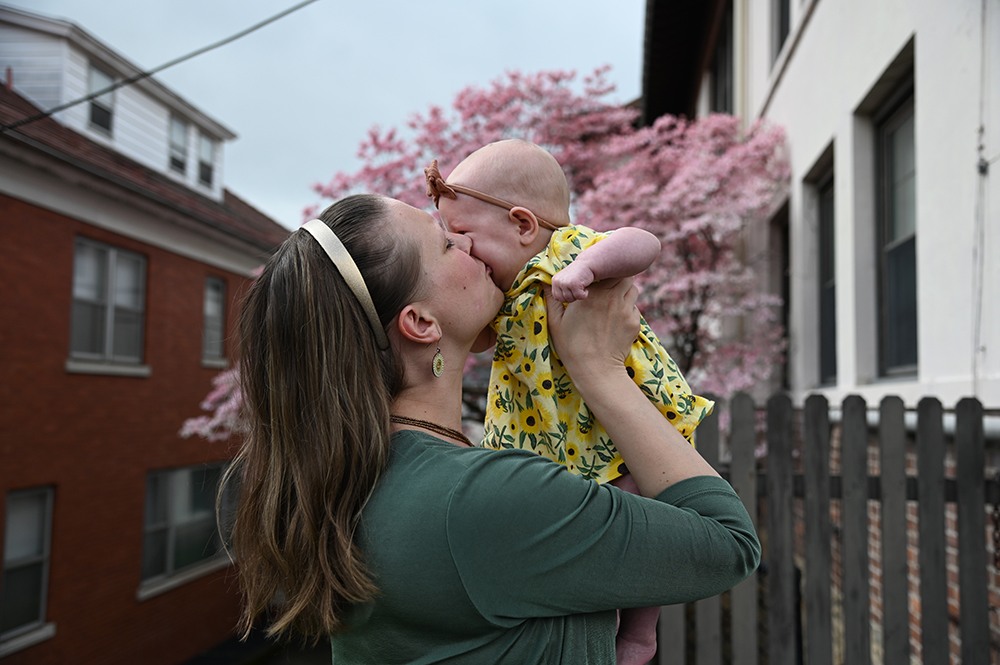
Heather and her daughter live at St. Joseph's Center in Scranton, Pennsylvania, where she works on housing, parenting, and employment goals with center staff. (Courtesy of St. Joseph's Center)
A US decision with global implications
Gramig said people on all sides of the abortion question have compassion for those struggling with the issue.
"We're there to be loving," Gramig said of those like her who take a "pro-life stance" but also agree that "it's not enough to say you're 'pro-life' " without respecting life at all stages. "There's probably never enough support for women."
Someone who knows that at the global level is Sr. Winifred Doherty, an Irish sister and the main U.N. representative of the Congregation of Our Lady of Charity of the Good Shepherd. She said while the Dobbs decision pertains to U.S. law, the court ruling also has international implications.
While abortion access is legally protected in most European countries, Doherty said the Supreme Court decision could embolden authoritarians in many parts of the world, such as Asia and Latin America, where abortion access is limited, education on human sexuality is not generally taught, and topics like abortion remain "in the shadows."
The Dobbs decision "has implications for girls and women beyond what would seem like the limited scope of abortion," said Doherty, who said she opposes abortion and stressed she was speaking for herself and not her congregation.
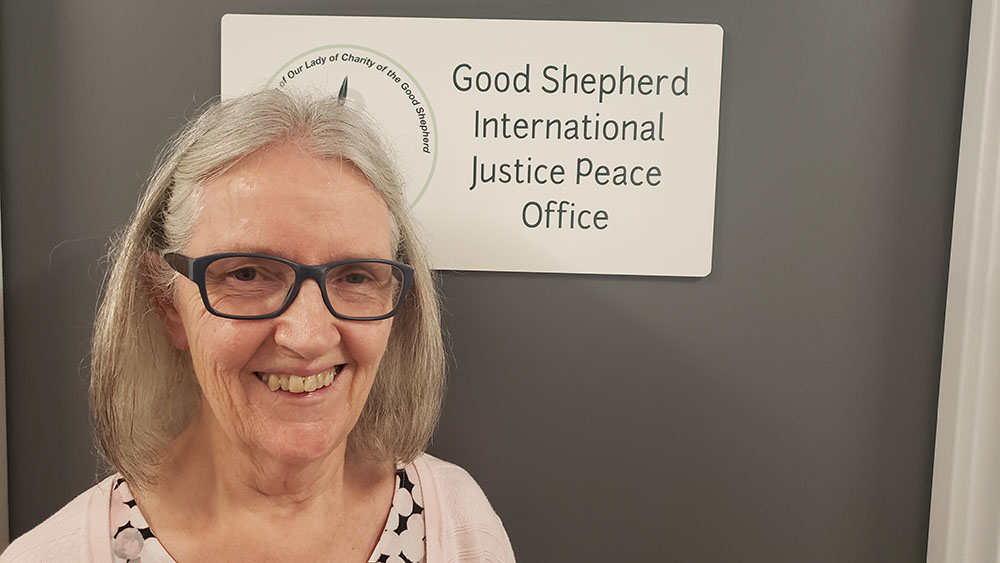
Sr. Winifred Doherty, the main U.N. representative of the Congregation of Our Lady of Charity of the Good Shepherd (GSR photo/Chris Herlinger)
"The overturning of the law actively feeds into and strengthens something we as women are experiencing, and not just in the U.S.: patriarchy and misogyny," she said.
"It seems like a direct assault on gender and gender equality."
Doherty ascribes her position to her experiences as a social worker in Ethiopia from 1991 to 2007, where she ministered to pregnant women who tried to end unwanted and sometimes risky pregnancies — "desperate women and girls who did desperate things to themselves that were not life-enhancing."
Doherty said the disagreements over abortion are serious and divide the church and even those within sister congregations. However, the overarching issue is the need to address "delicate issues compassionately and with mercy."
"The struggle of humanity is in seeking ways to affirm the dignity of everyone, but particularly those who are the least in society. How do we come to the table and see the good of everyone?" Doherty said. "This is what Jesus was about."
Novak of Network agreed, saying this just might be the moment "that brings us together" rather than focusing on what "separates us."
"Can we at least have good resources for all women and all babies?" she said. "Let's just start there."

